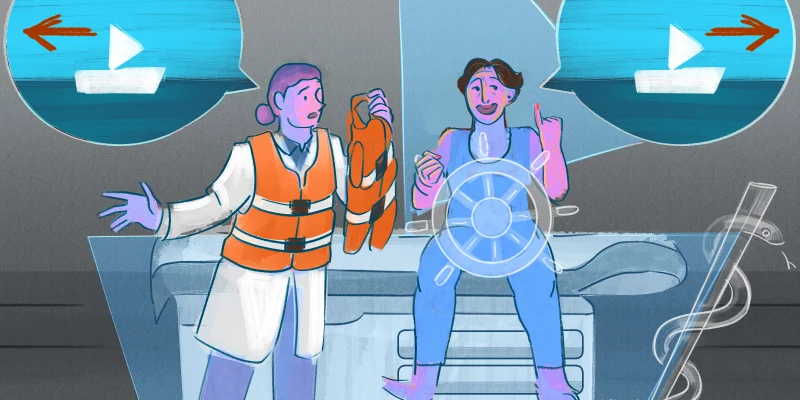
Some days, it probably feels like the entire pharmacy industry is conspiring against you.
The days of multiple job offers and signing bonuses seem to be behind us.
Unique pharmacist jobs seem to be drying up.
Now, it feels like we’re lucky to get a single job offer.
I recently spoke with a pharmacist in California who has been practicing for 20 years, and his 6-month job hunt hadn’t produced a single interview.
The trend of hospital closings continues to accelerate, and many retail pharmacies are simply closing their doors.
This shouldn’t be the case. Pharmacists deserve a job market where there is opportunity for growth, impact, and satisfaction.
How in the world do you remain competitive in a market that’s already crowded by an abundance of pharmacy schools?
How do you steel yourself against job loss when thousands of new pharmacists graduate from school each year?
How do you make yourself invaluable in an impossibly tight market?
1. Refuse to worry.
A great teacher (Jesus) once asked if you could add a single day to your life by worrying. (Hint: you can’t.)
When you allow worry to run uncontested through your mind, it becomes a mental habit; that habit becomes a negative loop that plays in your head.
Worrying about losing your job ends up being your go-to habit, but likely accomplishes nothing.
We have control over many things in our lives, but our job future isn’t necessarily one of them. There are, however, steps we can take to make ourselves more valuable to our employers.
2. Build a network.
Networking gets a bad rap because there are people who shamelessly exploit connections to sell junk.
Actually, though, networking is one of the most powerful tools available to us.
A network is more than a series of connections; a network consists of relationships that are nurtured and grown over time.
A healthy network tends to create job offers and new opportunities. A dying network doesn’t.
If your network hasn’t provided a new opportunity for you in recent months, it may be time to revitalize your network.
Be deliberate when you reach out to people. Treat them as more than a number by taking the time to introduce yourself.
Don’t hide behind excuses like introversion, because the truth is that we are hard-wired to connect with people. In fact, studies of inmates in solitary confinement indicate that isolation causes anxiety, paranoia, panic, and depression, among other things.
Don’t ask your connections to do anything for you. Instead, acknowledge their wisdom and find out what they are working on. You may find yourself invited to tag along to help.
3. Solve problems.
Companies aren’t in business to please their employees. They may value employee fulfillment, but ultimately, it isn’t their main goal.
Companies are in business to make money and their investors are happy when they do. On the other hand, companies that don’t make money aren’t sustainable, and in turn, pharmacists lose their jobs.
Pharmacists who solve problems for companies are the pharmacists who receive job offers.
I recently blogged about a pharmacist who reached out to the founder of a company, conducted market research analysis for the company and was ultimately offered a job as a result of his work. He wasn’t trying to get a job. He was simply solving problems.
Pharmacists aren’t typically trained to solve problems. We’re trained to carry out tasks, and that narrow focus is the reason so many retail pharmacists are stuck in their jobs: they only know how to fill prescriptions.
The truth is that pharmacies can find lots of people to carry out the daily tasks involved in the job. In fact, if the only requirement is to complete tasks, pharmacies can likely find someone less experienced to fill the position so they don’t have to offer as much salary.
Pharmacy forums overflow with stories of pharmacists who lost their jobs to new grads, hard times, and corporate takeovers. And though it’s painful, it’s our current reality.
Find out what your company is struggling with. What problems do you hear management consistently discuss? What creative solution could you offer to the problem?
By solving problems you become more valuable in the job market.
4. Dream big.
Fear of losing your job may be well-founded, but you must avoid allowing it to control you. If this isn’t the career you dreamed of, what’s stopping you from moving into something different?
Fear without action becomes worry, and we already discussed what worry does.
Dream big, and watch for opportunities around you.







